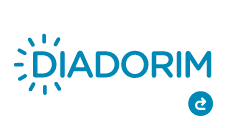About the Journal
PÓS: JOURNAL OF THE ARTS POSTGRADUATION PROGRAM AT EBA/UFMG
ISSN: 1982-9507 - Electronic ISSN: 2238-2046
History, goals, public and scope
Revista Pós is an academic journal published by UFMG through its Arts Postgraduate Program (PPG-Artes), and has been held every semester since 2012. It aims to contribute to academic reflections on/about Art from new and relevant works on that subject. The publication is openly accessible and accepts articles authored individually by PhD students or PhDs. Masters who wish to publish in this journal should do so in co-authorship with a PhD. Due to its relationship with PPG-Artes, the journal's scope of activity covers the Program Research Lines:
- Performing Arts;
- Teaching-learning in art;
- Fine Arts, Interart and Visual Arts;
- Cinema;
- Preservation of Cultural Heritage;
- Technological Poetics.
Revista Pós works with a rolling publishing policy, receiving articles at all times and publishing articles as soon as they are approved. These articles are compiled in issues twice a year: November/April and May/October. All submissions are subject to blind peer review and no fee is charged for submission or publication. Also, a thematic dossier (Dezember/May and June/November) dedicated to one of PPG-Artes lines of research is published biannualy, under the responsibility of a specific Editorial Committee.
Its editorial board is elected by the members of the PPG-Artes Board, with a three-year term. More information can be obtained in Portuguese at the PPG-Artes page regarding this journal.
Indexed Bases: Google Scholar; Diretório de Periódicos da UFMG; LivRe; Portal de Periódicos da CAPES; DOAJ; Lantindex; Diadorim; Sumários.org; WorlCat; OASISBR; ERIHPLUS; Miguelin; REDIB
CAPES Periodic Qualis Classification: A1
This study was financed in part by the Coordenação de Aperfeiçoamento de Pessoal de Nível Superior - Brasil (CAPES) - Finance Code 001
Peer Review Process
The evaluation of the submissions is made by reviewers selected by the Editor according to the subject of the text.
Article evaluations are double-blind, and carried out by at least two reviewers. The evaluation of visual essays, artists' writings, reviews, interviews, and translations is double-blind, and carried out by one reviewer.
They are performed under the following criteria:
1. Relevance and originality of the theme;
2. Treatment of the theme (argumentation and structure of the text);
3. Title (content adequacy / clarity);
4. Style (language, expository coherence, clarity);
5. Suitability of the work
Periodicity
Rolling publishing with a Biannual publication, starting in 2025. Regular issues are launched in April and October. Special dossiers are also biannual, with launches in May and November.
Open Access Policy
This journal offers immediate free access to its content, at no cost to the user or their institution, following the principle that making scientific knowledge freely available to the public provides greater democratization of knowledge worldwide. Users are authorized to read, download, copy, distribute, print, search, or link to the full texts of articles, or use them for any other legal purpose, without seeking prior permission from the publisher or author.
Copyright belongs to the authors, however, reprints must mention the first publication. All the contents of the Journal are available under the Creative Commons Attibution-NonCommercial License.
Editorial flow

*The final version, after the necessary modifications requested by the reviewers, is approved by the journal's editorial team.
Ethical Guidelines
Revista PÓS publishes original manuscripts that present research results and deepen academic discussions. The journal reserves the right to publish scientific and impartial manuscripts, which do not attack any political/ideological, ethnic/racial, religious or environmental position.
The act of publishing involves many parts, each of which plays an important role in achieving these objectives. Therefore, the author, editor and Editorial Board of the journal, and reviewers have responsibilities to maintain good ethical practices.
Author responsibilities
Plagiarism is not allowed, including the publication of extracts from the author himself without proper citation. Manuscripts submitted to Revista PÓS are checked for originality in a plagiarism detection program before going through peer review. Revista PÓS considers it an unethical practice to submit an article in more than one journal, as well as to publish it in more than one journal. To submit a manuscript to this journal, the author must confirm that the submitted manuscript is not being considered or already accepted for publication in another publication. Likewise, it is not allowed to send the same manuscript to another journal while it is under evaluation in the Revista PÓS. Release for other publications is given expressly and occurs only when the manuscript is rejected. If parts of the content overlap with the published or sent content, these sources should be acknowledged and cited. In addition, the author is responsible for providing the editor with a copy of any submitted manuscript that may contain overlapping or closely related content.
Approval by the Ethics Committee for projects that include methodologies that involve any type of interaction with human beings, such as interviews and observations.
Authors should promptly notify the editor of the journal if a significant error in their manuscript is identified, and cooperate with the editor to publish errata, retraction, or expression of concern about the document, when necessary.
All authors who sign the manuscript must have collaborated in its development.
AI is not an author and can not be held responsible, been unable to understand any possible conflict of interest in terms of ethics or integrity. This kind of tool is permitted only for complementary tasks such as research, review, and improving the clarity of the text. It does not replace critical analysis and interpretation of results, which are considered authorial work. If used to generate text and images, those indicated as the author(s) are held fully responsible. This needs to be done with transparency, indicating in a note how, where, and why these AIs are used. An author(s) is also committed to the veracity of what was submitted, under the assumption that all material has been checked and corrected to eliminate plagiarism and accidental copyright infringement, non-existent or false quotations and statements (algorithm hallucinations) as well as possible discriminatory biases that may have occurred.
Authors' names, acknowledgements, information on financing, or any references/citations to authors should be removed from the manuscript version for evaluation, in order to preserve the double blind revision.
Authors submitting manuscripts for evaluation may be invited to participate in the peer review process of the PÓS Journal.
Responsibilities of the Editor and Editorial Board
The editor is responsible for the initial evaluation of the manuscript, regardless of the author's geographical origin, political/ideological position, religious belief, gender and ethnic/racial origin. The initial positive evaluation directs the manuscript to peer review.
Based on the norms of ethical conduct of COPE and Scielo, the Editorial Board of the PÓS Journal will publish, whenever necessary, Errata, Retractions and Manifestations of concern about published articles. The retraction is a public instrument to register and/or correct problems of a published article or to communicate its cancellation. Errata is the document that aims to correct errors identified in an article already published. An expression of concern is a record of doubt about a published article regarding misconduct or plagiarism, used when there is not yet sufficient conclusive evidence for a retraction.
Revista PÓS claims the right to withdraw and/or retract works that have been proven to have committed any type of fraud, after due proof. Ethical violations will be judged by the Editorial Board of the journal and, if necessary, by a member(s) of the Editorial Board. The denunciation of ethical infractions must be communicated through the e-mail revistapos.ppga@gmail.com, by any person at any time. Authors will have the opportunity to respond to any complaint.
The editor, the Editorial Board and the Editorial Board are responsible for preserving the ethical aspects of the PÓS Journal, resolving any conflicts with brevity and transparency, with the main objective of maintaining the credibility of the journal.
Responsibilities of reviewers
The reviewers are responsible for contributing to the decision-making process and helping to improve the quality of the published article, reviewing the manuscript objectively and in a timely manner. In addition, these are the responsibilities of the reviewers:
a) maintain the confidentiality of any information provided by the editor or author. Do not retain or copy the contents of the manuscript;
b) alert the editor to any content published or sent that is substantially similar to that under review, without adequate citation;
c) be aware of any potential conflicts of interest (financial, institutional, collaborative or other relationships between the reviewer and the author) and alert the editor to them, if necessary, withdrawing his services to that manuscript.
Conduct in cases of suspected ethical violations
In cases of suspected ethical violations, any member of the academic community (authors, readers, reviewers, Editorial Board) or the general public may report to revistapos.ppga@gmail.com. Reports made directly to a member of the Editorial Board or by other means will be registered through the journal's formal communication channel (electronic address), through which resolutions will also be notified and/or responses sent to the complainant.
Ethical infractions relate to: duplicate publication, plagiarism, data manufacturing, questions related to authorship (change, ghost author, etc.), conflicts of interest not mentioned, misappropriation of ideas or data by a reviewer and other ethical questions related to the research (for example, involving people).
The editor (or member of the invited Editorial Board) will strictly follow the conflict resolution flow of the Committee on Publication Ethics (COPE) most pertinent to the situation, in order to investigate and resolve the issue. The flows currently used by PÓS can be checked here.
Interoperability protocol
OAI 2.0: https://periodicos.ufmg.br/index.php/revistapos/oai
Long-term preservation service
The content of PÓS Journal is preserved by the PKP Preservation Network (PKP PN) and the Brazilian Network of Digital Preservation Services (Rede Cariniana), which is part of Stanford University's "Lots Of Copies Keep Stuff Safe" (LOCKSS) Program for digital preservation.











